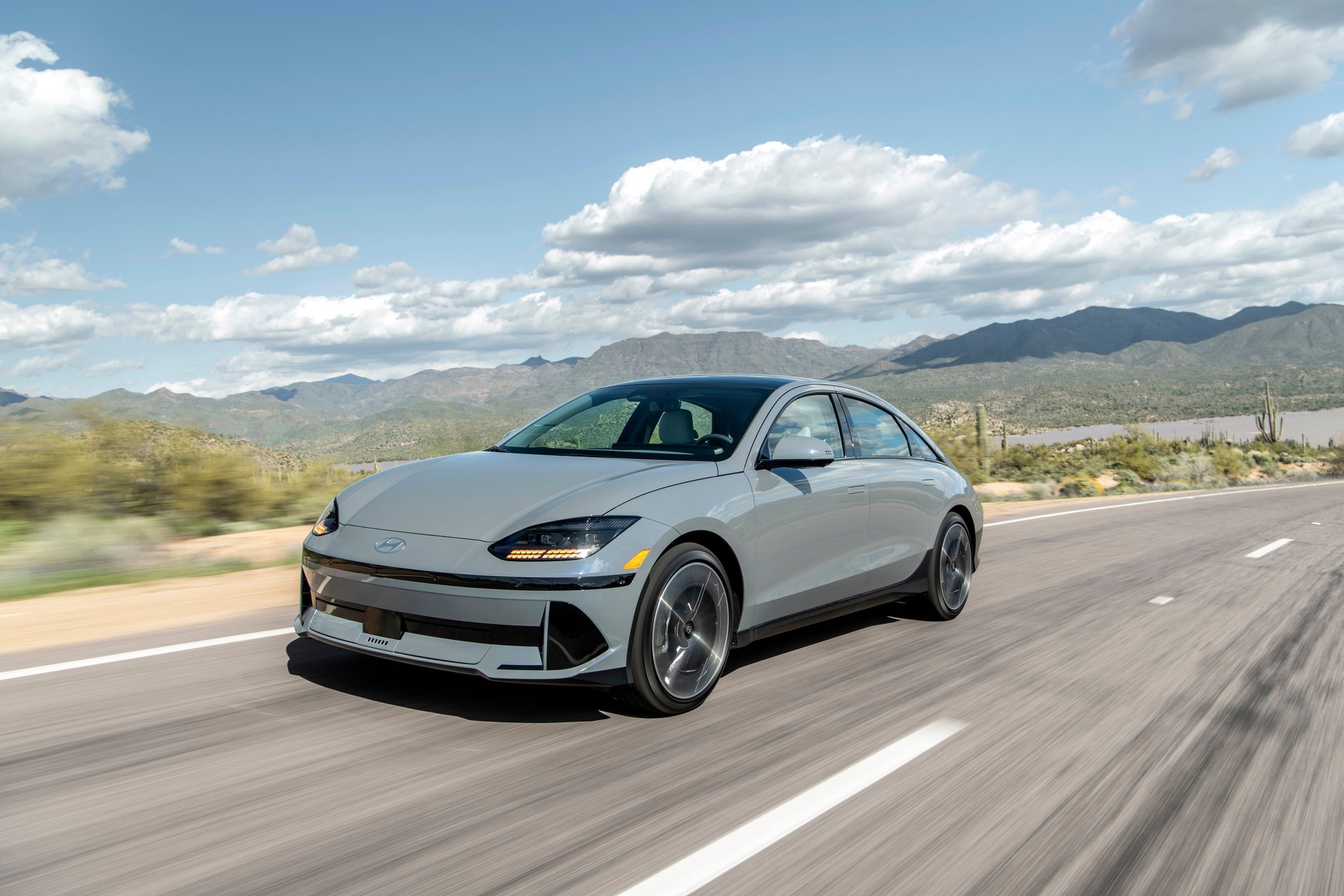Hyundai is readying a hybrid push in case Trump wins
The former president has said he would gut pro-electric vehicle rules favored by the current administration

Hyundai Motor isn’t that worried about a potential victory for former president Donald Trump in November. It’s getting ready to go hybrid anyway — just in case.
Suggested Reading
“Even if Trump wins the election, we don’t expect the Inflation Reduction Act [IRA] to be scrapped,” Hyundai Chief Financial Officer Lee Seung Jo said on an earnings call, referring to President Joe Biden’s signature clean-energy legislation that heavily favors electric vehicles.
The IRA provides a slew of benefits for EV companies and their related industries, such as charging infrastructure or battery firms. All in all, it provides $369 billion in tax breaks and subsidies for clean energy and helped push companies to invest some $77.6 billion in EV projects, according to Manufacturing Dive.
However, Trump has promised to put a freeze on the IRA’s grants and subsidies, repeatedly saying he would put a stop to new grants and funding from Biden’s legislation as soon as he took office. He also promised to roll back new regulations on tailpipe emissions, as well as other favorable rules enacted under the Biden administration.
“And I will end the electric vehicle mandate on day one,” Trump said during his speech at the Republican National Convention (RNC) last week, adding that he would save “the U.S. auto industry from complete obliteration.”
Lee said Hyundai will review the possibility of building more hybrid vehicles to prepare for any changes to the IRA and its benefits for EVs. The South Korean automaker’s hybrid sales were up 42% during the April to June quarter. Lee also noted that red states heavily benefit from the IRA, including Ohio, which Trump’s running mate represents in the Senate.
Although Hyundai’s cars don’t yet qualify for the IRA’s $7,500 tax credit for made-in-America EVs or plug-in hybrids, the company has fast-tracked its plans for a new $7.59 billion factory in Ellabell, Georgia. The company also plans to build a $5 billion EV battery plant in Bartow County. Once operational, Hyundai expects to build 300,000 EVs annually.
“We’re pulling ahead because everybody knows how important it is because so far we don’t qualify for federal tax credits,” Hyundai Motor America CEO Jose Munoz told Automotive News in February.
Although it’s unclear what models will be the first to go on the plant’s assembly lines, it will eventually produce the three-row Ioniq 7, which is expected to launch next year. The facility will assemble a total of six models across Hyundai’s namesake brand, as well as Kia and Genesis. Those vehicles are expected to qualify for the EV tax credit; an existing factory in Alabama makes models that don’t yet qualify, including the GV70 electric SUV.
Hyundai on Tuesday reported a strong showing for its second-quarter, including net profits of $2.9 billion, up 23% from a year earlier. That comes in stark contrast to rivals such as Stellantis and Ford Motor, which took profit hits last quarter.
Hyundai stock is down less than 1%, as poor showings from other automakers bring the market down. Stellantis shares are down 7% and General Motors stock dropped 4% Thursday. Ford shares are down more than 17% after its poor quarter.
